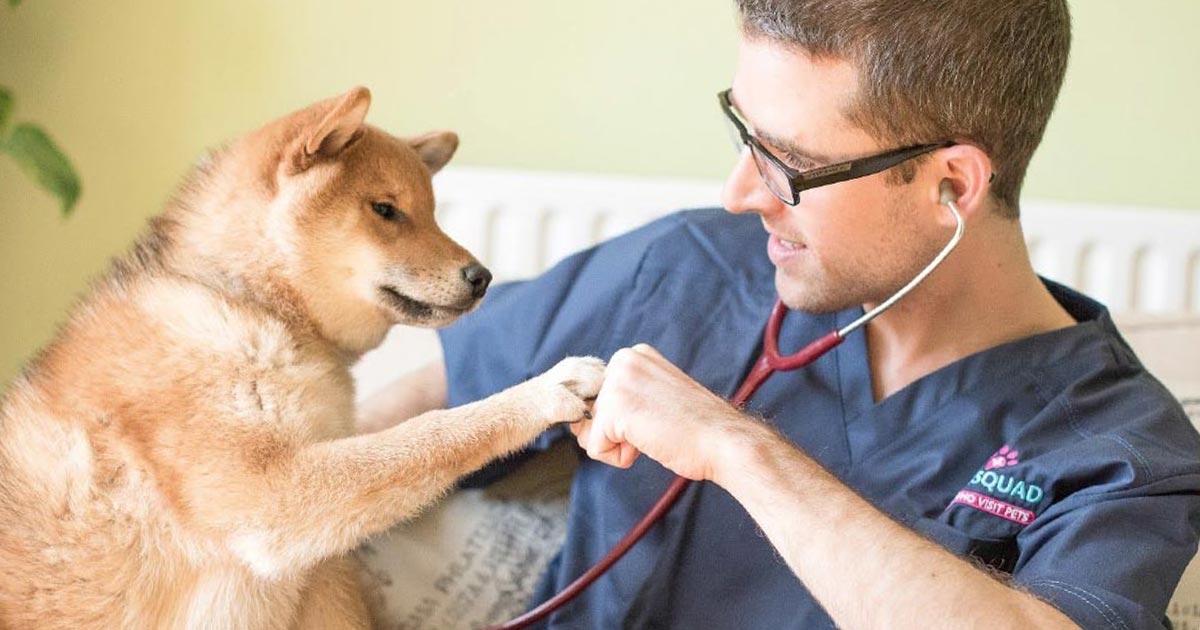We were disappointed to read Nick Marsh’s recent assessment of home visits as “frustrating and scary”. As the UK’s largest home visit service provider, we are concerned about owners who cannot easily take their animals to the vet.
As we are all too familiar with, travelling to the vet can be a traumatic experience for many pets – particularly cats in cages. On the other hand, the trip itself can also be challenging for some owners – especially those with disabilities.
Building relationships
In our experience, rather than being “scary”, home visits are a good combination of art and science – not only do they call for impeccable clinical skills, they also require the vet to step out of his or her comfort zone and interact with people. As we all know, people can indeed be “weird” and ”unpredictable”, but usually what they really want is to invite you in for a cup of tea and let you play with – erm… I mean examine – their pet.
During a home visit, our vets have the time and space to build lasting relationships with owners and pets that are relaxed in their home environment.
Rather than worrying about the amount of time home visits take, we believe this is one of the best things about them. It gives our vets the opportunity to assess the home environment as part of their holistic approach – particularly pertinent given the increasing number of elderly, obese and/or osteoarthritic pets.
Owners greatly appreciate the time taken by home visit vets to understand them and their pets’ issues, listen, examine, explain and treat.
Proper care and attention
Our home visit vets express increased professional satisfaction at being able to provide better, more personal care than they often can in practice; one vet commented home visits give her the time to “ensure the pet receives the proper care and attention it deserves”.
PawSquad vets have also found they can do much more than anticipated for patients with more complex conditions. For example, vets with postgraduate qualifications in feline medicine find they can manage elderly cats with hyperthyroidism, chronic kidney disease, diabetes mellitus and cognitive disorders, and only occasionally need to refer them into a traditional practice for more advanced procedures.
Of course, owners are incredibly appreciative of the end-of-life care home visit vets can offer, but this is only one part of the work we do. New puppy and kitten care, vaccinations and check-ups, chronic care and everyday wound care, medications and diagnostics all feature prominently.
Growing demand
It’s quite surprising what you can achieve at home with the right approach – we rarely encounter an animal that needs extra manpower – rather, most need understanding, time, consideration and bespoke care.
The availability of drugs and equipment (or lack thereof) is not an issue we have ever encountered. In fact, we find this simply takes a little forethought. It’s easy enough to have everything you might need in the car together with a small visit bag containing the essentials for a clinical examination. In our experience, owners don’t mind at all if you need to pop back to the car for a specific drug you don’t have in your bag.
Home visits as a service will continue to expand – we see it in the demand from owners, and the enthusiasm with which we’re greeted in new locations. It will mean many people who cannot get to a physical practice, or whose pets can’t cope with the stress, will have access to good quality health care.
Whatever your viewpoint, increasing the number of pets under veterinary care must be something we can all agree is a positive outcome. It will also mean more people in general can choose a convenient solution that works better for them, and thereby give us more opportunities to care for pets preventively.

Leave a Reply